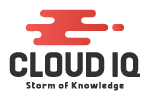Cisco Email Security Appliance
The Securing Email with Cisco Email Security Appliance course shows you how to deploy and use Cisco Email Security Appliance to establish protection for your email systems against phishing, business email compromise, and ransomware, and to help streamline email security policy management. This hands-on course provides you with the knowledge and skills to implement, troubleshoot, and administer Cisco Email Security Appliance, including key capabilities such as advanced malware protection, spam blocking, anti-virus protection, outbreak filtering, encryption, quarantines, and data loss prevention.
Benefits
This class will help you:
- Deploy high-availability email protection against the dynamic, rapidly changing threats affecting your organization
- Gain leading-edge career skills focused on enterprise security
- Earn 24 Cisco CE credits toward recertification.
Who should enroll
- Security engineers
- Security administrators
- Security architects
- Operations engineers
- Network engineers
- Network administrators
- Network or security technicians
- Network managers
- System designers
- Cisco integrators and partners
Prerequisites
To fully benefit from this course, you should have one or more of the following basic technical competencies:
- Cisco certification (Cisco CCENT certification or higher)
- Relevant industry certification, such as (ISC)2, CompTIA Security+, EC-Council, Global Information Assurance Certification (GIAC), and ISACA
- Cisco Networking Academy letter of completion (CCNA 1 and CCNA 2)
- Windows expertise: Microsoft [Microsoft Specialist, Microsoft Certified Solutions Associate (MCSA), Microsoft Certified Systems Engineer (MCSE)], CompTIA (A+, Network+, Server+)
The knowledge and skills that a student must have before attending this course are:
- TCP/IP services, including Domain Name System (DNS), Secure Shell (SSH), FTP, Simple Network Management Protocol (SNMP), HTTP, and HTTPS
Experience with IP routing
Who should enroll
- Security engineers
- Security administrators
- Security architects
- Operations engineers
- Network engineers
- Network administrators
- Network or security technicians
- Network managers
- System designers
- Cisco integrators and partners

Prerequisites
To fully benefit from this course, you should have one or more of the following basic technical competencies:
- Cisco certification (Cisco CCENT certification or higher)
- Relevant industry certification, such as (ISC)2, CompTIA Security+, EC-Council, Global Information Assurance Certification (GIAC), and ISACA
- Cisco Networking Academy letter of completion (CCNA 1 and CCNA 2)
- Windows expertise: Microsoft [Microsoft Specialist, Microsoft Certified Solutions Associate (MCSA), Microsoft Certified Systems Engineer (MCSE)], CompTIA (A+, Network+, Server+)
The knowledge and skills that a student must have before attending this course are:
- TCP/IP services, including Domain Name System (DNS), Secure Shell (SSH), FTP, Simple Network Management Protocol (SNMP), HTTP, and HTTPS
- Experience with IP routing

